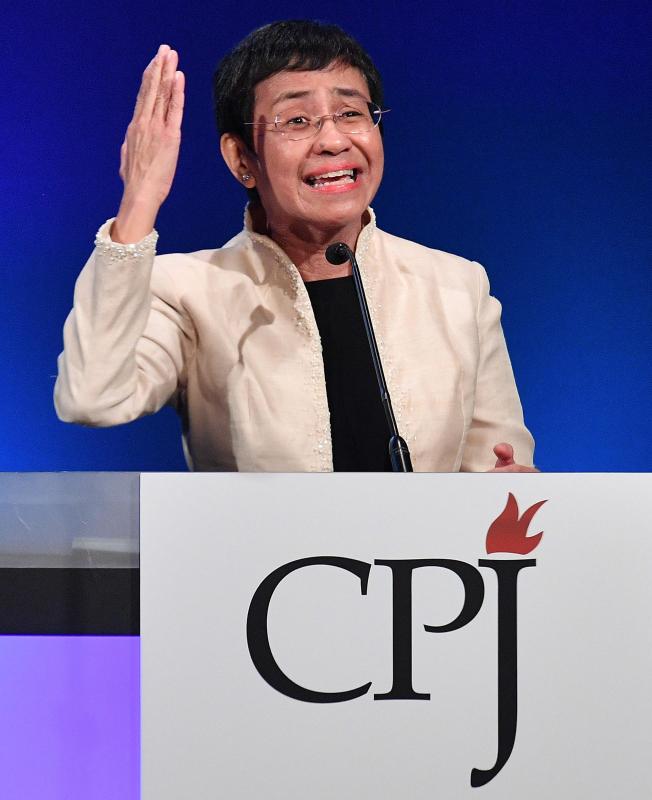The Philippine government’s legal harassment of the news website Rappler and Maria Ressa, its founder and executive editor, took an alarming turn Wednesday when officers from the National Bureau of Investigation arrested Ressa at Rappler‘s bureau in Manila and held her overnight over a cyber libel case filed against her by the Justice Department. Ressa’s arrest was in connection to a story published by Rappler in 2012, before the law was enacted. Ressa told CPJ before her arrest that the charge was “political” and that the Philippines has “weaponized” its cybercrime law. Ressa was released on bail on Thursday morning. CPJ’s Asia Program Coordinator Steven Butler explored the implications of Ressa’s arrest for press freedom in an op-ed for CNN.
Apart from the cyber-libel charges, Ressa and Rappler face five tax cases. In December, CPJ and First Look Media announced a campaign to provide legal support for journalists, and the first recipients were Ressa and Rappler. CPJ’s board also passed a resolution Wednesday condemning the arrest.
Global press freedom updates
- CPJ concerned about journalists’ safety at Trump rallies
- CPJ welcomes Mexican Supreme Court ruling in Carmen Aristegui case
- CPJ joined 47 members of the European Parliament and other press freedom organizations to call on Turkey to end its crackdown on the press and the mass imprisonment of journalists
- CPJ condemns 15-day ban on Thai TV news station
- Editor appears in Belarus court on charge of illegally accessing state media website
- Ugandan regulator orders news website suspended and threatens criminal charges
- Read the latest Turkey Crackdown Chronicle, CPJ’s weekly round-up of press freedom violations in the country
- Pakistani journalist arrested for critical Twitter posts
- Russia investigates reporter, seizes property over allegations of “justifying terrorism”
- Editor of Russia’s Novye Kolyosa due in court after 15 months in custody
- Italian photojournalist severely injured covering clashes in eastern Syria
- Syrian journalist injured in shelling in Idlib province
Spotlight
CPJ has recently documented incidents of journalists being harassed and questioned at U.S. borders by U.S. Customs and Border Protection. CPJ has also reported on cases of journalists covering the migrant caravan being denied entry into Mexico by Mexican authorities.
Learn more about warrantless searches at U.S. borders in our 2018 report “Nothing to declare: Why U.S. border agency’s vast stop and search powers undermine press freedom” or hear from CPJ experts interviewed by NPR and The San Diego Tribune.
Find more in our safety notes on how journalists can protect themselves when crossing borders.
What we are reading
- Democracy at risk: Threats and attacks against media freedom in Europe — The Council of Europe Platform to Promote the Protection of Journalism and Safety of Journalists
- Freedom in the World 2019 — Freedom House
- A path to justice in the ISIS murders of two journalists — CPJ Executive Director Joel Simon, Columbia Journalism Review
- Journalists, lawyers, and activists working on the border face coordinated harassment from U.S. and Mexican authorities — Ryan Devereaux, The Intercept
